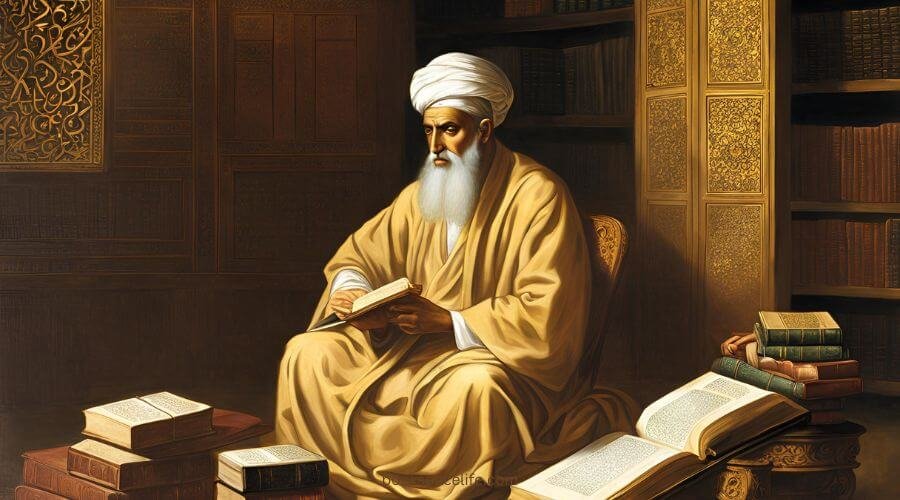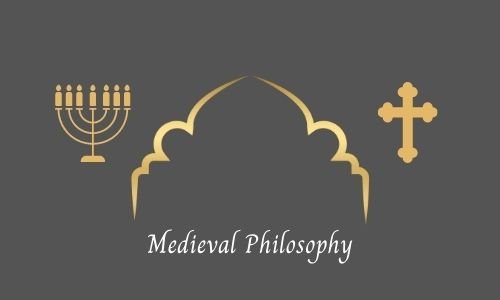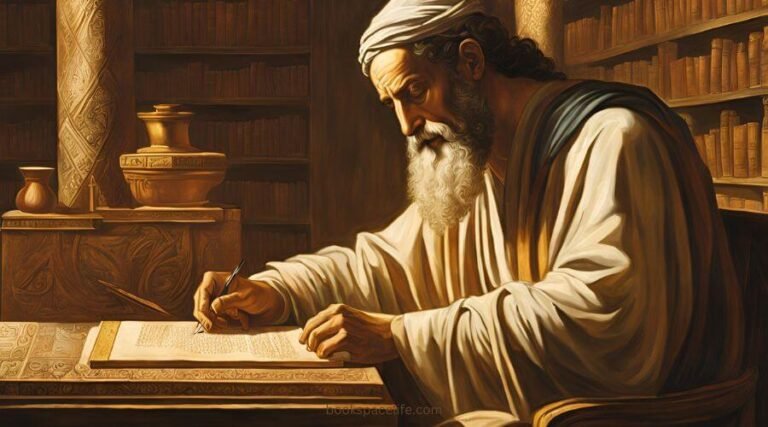Al-Ghazali
Al-Ghazali : The Philosopher Who Reconciled Faith and Reason
Abu Hamid Muhammad ibn Muhammad al-Ghazali, more commonly known as Ibn Ghazali (1058–1111 CE), stands as one of the most influential Islamic philosophers and theologians of the medieval period.
Al-Ghazali played a pivotal role in shaping the intellectual landscape of the Islamic world, reconciling philosophy, theology, and mysticism. His work has continued to resonate across generations, influencing not only Islamic thought but also Christian, Jewish, and Western philosophical traditions.
His profound contributions to philosophy, mysticism, and religious thought, particularly in addressing the relationship between faith and reason, make him an intellectual giant of the Islamic Golden Age.
Table of Contents
(1) Early Life and Education
Ibn Ghazali was born in 1058 CE in the city of Tus in northeastern Iran, which was part of the Seljuk Empire at the time.
His family was of humble origins; his father, a prominent scholar, passed away when Ibn Ghazali was young, leaving him to be raised by his brother, Ahmad, who himself had a keen interest in learning.
Ibn Ghazali initially studied in Tus, where he displayed an early aptitude for learning.
At the age of 15, Ibn Ghazali traveled to Nishapur, a major intellectual hub, to continue his education.
There, he studied under prominent scholars, including Al-Juwayni, one of the most respected philosophers and theologians of his time, who was a key figure in the Shafi‘i school of Islamic jurisprudence.
Under Al-Juwayni’s tutelage, Ibn Ghazali acquired profound knowledge of Islamic jurisprudence, logic, and philosophy, immersing himself in the works of earlier philosophers such as Aristotle, Plato, and the Neoplatonists.
His studies also encompassed theology (kalam), mysticism (Sufism), and ethics.
Ibn Ghazali quickly gained a reputation for his intellectual brilliance, and he eventually became a professor of theology at the Nizamiyya madrasa in Baghdad, one of the most prestigious educational institutions of the time.
It was during his time in Baghdad that he began to experience an intellectual and spiritual crisis that would shape his later philosophical contributions.
(2) The Intellectual Crisis and the Turn to Mysticism
Despite his success and recognition as a scholar, Ibn Ghazali faced a profound spiritual crisis that led him to question the very foundations of his knowledge and beliefs.
This inner conflict was triggered by his study of philosophy and theology, which, while intellectually stimulating, left him feeling spiritually unsatisfied.
He began to see the limitations of purely rational knowledge and began to doubt whether intellectual learning alone could lead to true understanding of God and the purpose of human life.
In 1095, at the peak of his academic career, Ibn Ghazali experienced a transformative moment of reflection.
He decided to abandon his prestigious position and withdraw from the academic world to embark on a journey of spiritual seeking.
This period of self-imposed exile was crucial in shaping his later philosophical thought. During this time, Ibn Ghazali delved deeply into Sufism, the mystical branch of Islam, and focused on introspection and spiritual purification.
He sought to reconcile his intellectual pursuits with his newfound spiritual path, realizing that true knowledge could only come through a combination of reason and inner spiritual experience.
This period of retreat resulted in some of his most important writings, which would establish him as a major figure in Islamic thought.
(3) Ibn Ghazali’s Major Philosophical Works
Ibn Ghazali’s works can be divided into two main categories: his theological and philosophical writings and his mystical and spiritual writings.
His most famous and influential work is “The Incoherence of the Philosophers” (Tahafut al-Falasifa), written in 1095.
In this book, Ibn Ghazali critiques the Avicennian philosophy (the philosophy of Ibn Sina, or Avicenna) that had been influential in the Islamic world.
(i) The Incoherence of the Philosophers
In The Incoherence of the Philosophers, Ibn Ghazali argues that many of the philosophers, especially those who followed Aristotle and Ibn Sina, had deviated from true Islamic teachings.
He criticizes their views on God’s existence, the nature of causality, and the immortality of the soul, challenging their assumptions about the relationship between reason and revelation.
Ibn Ghazali’s critique centers on the idea that certain philosophical positions—such as the belief in an eternal universe or the denial of bodily resurrection—contradict Islamic doctrine, particularly the teachings found in the Quran and Hadith.
His criticisms were groundbreaking, as they not only critiqued the Peripatetic philosophers but also aimed to show that pure reason alone, divorced from faith and divine revelation, was insufficient for achieving true understanding.
Ibn Ghazali’s Tahafut was groundbreaking because it brought a new level of rigor to the debate between philosophy and theology in the Islamic world.
(ii) The Revival of the Religious Sciences
In addition to his philosophical works, Ibn Ghazali is also known for his deeply influential spiritual writings.
His “The Revival of the Religious Sciences” (Ihya’ Ulum al-Din) is perhaps his most important work, and it remains a central text in Islamic mysticism and ethics to this day.
In the Ihya’, Ibn Ghazali explores various aspects of Islamic life, combining Islamic theology, ethics, and Sufism.
The work is divided into four sections: acts of worship, social interactions, the inner dimensions of the soul, and the virtues and vices of the heart.
The Ihya’ is a comprehensive guide to living a spiritually fulfilling life in accordance with Islamic principles.
It stresses the importance of inner purification, self-control, and the cultivation of virtues such as humility, patience, and gratitude.
Ibn Ghazali’s emphasis on the practical application of spirituality in everyday life resonated deeply with the Islamic community and became a seminal text in Sufi and orthodox Islamic thought.
In the Ihya’, Ibn Ghazali emphasized the centrality of direct personal experience of God (a mystical experience) and saw this as the key to achieving true knowledge.
His work advocated for spiritual purification through regular worship, repentance, and meditation.
This integration of reason and spirituality was groundbreaking and would influence the development of Sufi philosophy and Islamic mysticism for centuries to come.
(4) Influence and Impact
Ibn Ghazali’s influence on both the Islamic and Western intellectual traditions is vast and enduring.
His critiques of philosophy and his efforts to integrate rational thought with spiritual practice shaped the development of Islamic theology and mysticism.
His work had a profound impact on later Islamic philosophers such as Ibn Rushd (Averroes), who engaged with his critiques, as well as Ibn Arabi, a major figure in Islamic mysticism.
Ibn Ghazali’s work on the relationship between reason and faith was pivotal in fostering a more holistic approach to knowledge.
He argued that rational thought, while important, was insufficient on its own, and that a deep, personal connection with God—achieved through spiritual discipline—was essential for true understanding.
This message was particularly influential in the development of Islamic orthodoxy and Sufism.
His blend of philosophical rigor and spiritual insight helped bridge the gap between Islamic theology and mysticism, laying the foundation for later scholars and mystics.
In the West, Ibn Ghazali’s influence was more indirect, but his ideas were influential in the development of medieval Christian theology.
His critique of Avicennian philosophy and his integration of mystical thought would later resonate with thinkers such as Thomas Aquinas and other Scholastics, who sought to reconcile reason and faith in their own theological works.
His ideas about the limitations of human reason and the necessity of divine revelation also played a role in shaping the medieval scholastic tradition.
(5) Conclusion
Ibn Ghazali was not only a philosopher and theologian but also a mystic who played a central role in shaping Islamic thought during the medieval period.
His ability to reconcile the often disparate worlds of reason and faith, philosophy and mysticism, made him one of the most profound thinkers of his time.
Through his critiques of philosophy and his emphasis on spiritual experience, Ibn Ghazali was able to address the intellectual challenges of his era while offering a path forward that integrated intellectual rigor with deep spiritual insight.
His legacy continues to shape both Islamic thought and the broader intellectual tradition to this day, making him a towering figure in the history of philosophy and theology.








